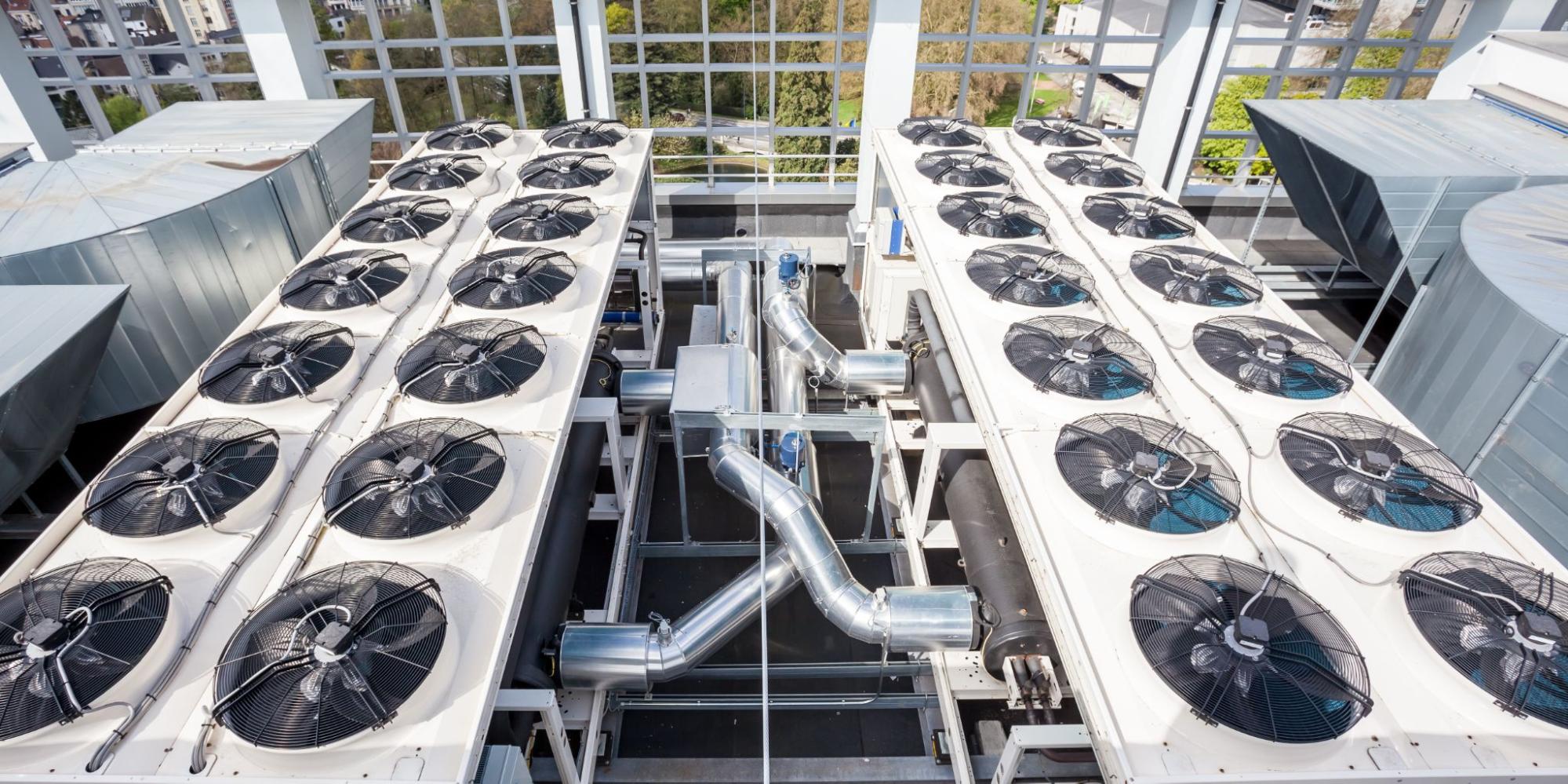Commercial HVAC Contractor Providing Specialist Cooling And Heating Solutions
Commercial HVAC Contractor Providing Specialist Cooling And Heating Solutions
Blog Article
How Air Conditioning Systems Revolutionize Indoor Environments for Year-Round Convenience
The arrival of air conditioning systems has undoubtedly changed the way we experience indoor environments, providing unprecedented control over temperature and convenience throughout the year. These systems go past simple temperature level changes; they improve indoor air high quality and contribute dramatically to energy effectiveness.
Temperature Level Control and Flexibility
When it comes to achieving year-round convenience, the significance of temperature level control and adaptability in air conditioning systems can not be overemphasized. Modern air conditioning systems provide sophisticated modern technologies such as programmable thermostats and variable speed compressors, which allow individuals to preserve desired temperatures with remarkable performance.
Flexibility is another important part of contemporary a/c systems. With attributes like zoning capacities, individuals can tailor temperature settings in various areas of a structure, dealing with private preferences and use patterns. This degree of control makes sure ideal comfort in every room while minimizing power waste. Furthermore, some systems include clever modern technology, making it possible for remote gain access to and management with mobile gadgets. This development allows individuals to adjust setups on-the-go, supplying unparalleled convenience and adaptability.
In industrial rooms, this adaptability is particularly advantageous, as it enables organizations to produce tailored environments that boost efficiency and consumer satisfaction. Eventually, the accuracy and versatility of modern a/c systems play a crucial duty in supplying reliable, year-round indoor comfort.
Enhancing Indoor Air High Quality
In enhancement to temperature control, boosting indoor air high quality is an important facet of modern air conditioning systems. Including high-efficiency particle air (HEPA) filters, modern-day air conditioners can record tiny bits, such as pollen, dust, and smoke, which contribute to respiratory problems and allergies.
Additionally, advanced air conditioning systems often consist of functions such as humidity control, which is pivotal in avoiding mold development and preserving optimal dampness degrees (HVAC Contractor). Extreme humidity can bring about discomfort, advertise microbial development, and exacerbate specific wellness problems. By managing moisture, air conditioners aid mitigate these threats, better boosting indoor air high quality
In addition, some systems incorporate air cleansers and ionizers, employing innovations that counteract pollutants and shut down air-borne virus. This detailed method to air quality monitoring guarantees a much healthier indoor setting, minimizing the threat of disease and enhancing general well-being. Subsequently, the focus on air top quality improvement emphasizes the developing role of air conditioning systems past simple temperature level regulation.
Power Effectiveness Innovations
Modern air conditioning systems have gone through significant innovations in energy performance, contributing to both cost financial savings and ecological sustainability. The adoption of high-efficiency compressors, variable rate motors, and advanced refrigerants are essential innovations that have actually changed just how these systems operate.
Smart thermostats have actually additionally played a crucial role in improving energy performance. These gadgets learn individual preferences and adjust cooling timetables appropriately, making sure that air conditioning systems operate just when necessary. Assimilation with smart home modern technologies permits remote control and surveillance, further cutting energy wastefulness.
These refrigerants are not just better for the setting however additionally enhance system effectiveness, lining up with international initiatives to reduce carbon impacts. Innovations in his comment is here warmth exchanger modern technology have allowed more reliable warm transfer, enhancing overall system performance.
Effect On Wellness and Health
The impact of cooling systems on health and wellness and well-being is diverse, impacting numerous elements of day-to-day live. Mainly, these systems supply remedy for severe temperatures, which is important for vulnerable populaces such as the elderly and people with certain health conditions. By keeping a secure interior climate, cooling decreases the risk of heat-related diseases, consisting of warmth exhaustion and heatstroke, consequently safeguarding passengers' health and wellness.

However, it is important to maintain cooling systems consistently to guarantee their ideal performance and to avoid prospective health risks connected with inadequately maintained devices, such as the proliferation of bacteria. Inevitably, when efficiently handled, a/c systems play a crucial duty in enhancing convenience, promoting well-being, and sustaining a much healthier living environment throughout the year.
Integration With Smart Modern Technology
Smart modern technology has transformed the way a/c systems run, offering improved control, comfort, and efficiency. Modern a/c systems currently integrate effortlessly with wise home environments, permitting individuals to handle their interior climate from another location via smart devices or voice-controlled gadgets. This connectivity enables real-time surveillance and modifications, guaranteeing that energy usage is optimized and convenience is maintained without the need for continuous hand-operated treatment.
The assimilation with smart technology additionally promotes the use of innovative organizing functions, enabling systems to readjust temperatures according to tenancy patterns and preferences. HVAC Contractor. This not just takes full advantage of convenience but also decreases unneeded energy usage, adding to lower energy prices and a reduced check that carbon impact. In addition, wise sensors provide important information on air quality and system performance, alerting users to potential problems before they rise right into expensive repairs
In addition, compatibility with smart home aides such as Amazon Alexa or Google Assistant improves user experience by giving hands-free control and the capability to produce personalized automation regimens. As clever technology proceeds to develop, it will definitely bring more technologies to a/c systems, ensuring they stay at the center of supplying optimal interior environments year-round.
Verdict

In enhancement to temperature level control, improving interior air high quality is an important aspect of modern air conditioning systems. Integrating high-efficiency particle air (HEPA) filters, modern-day air conditioners can capture microscopic fragments, such as plant pollen, smoke, ac plenum and dirt, which add to respiratory system problems and allergies. By controling humidity, air conditioners help mitigate these risks, additionally improving interior air quality.
The emphasis on air high quality enhancement underscores the progressing duty of air conditioning systems beyond simple temperature law.
In addition, air conditioning systems add to boosted interior air high quality by filtering system out pollutants, allergens, and particle matter.
Report this page